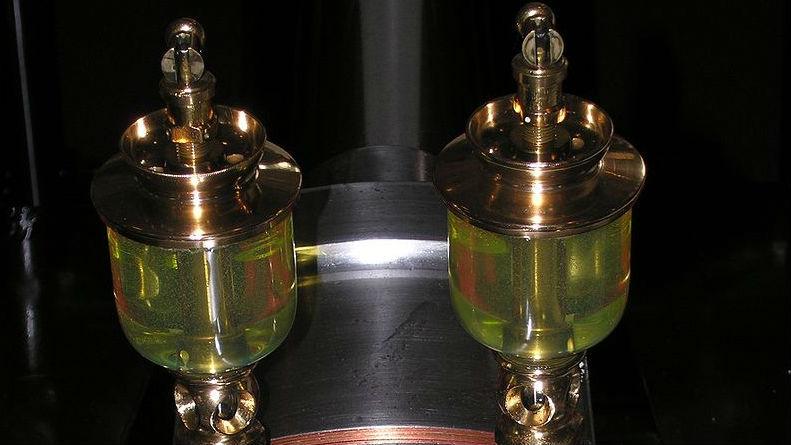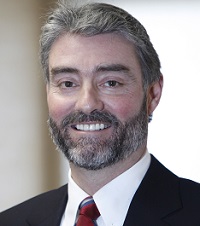2014 in Review: Lubricants and the VGP

Shipowners have been proactive in their adoption of environmentally friendly lubricants to satisfy the December 19, 2013 U.S. vessel general permit (VGP) requirements, perhaps more proactive than some of the oil companies.
 Rob Atkinson, executive director of UniMarine, reflects on the new requirements one year on, and remembers in the months leading up to the new regulation that shipowners were asking and oil companies weren’t necessarily able to deliver. “There was a lot of last minute rushing for something that people knew was coming, and even after the VGP took effect, the level of demand was not well anticipated,” says Atkinson. “They all seemed to be scrambling.”
Rob Atkinson, executive director of UniMarine, reflects on the new requirements one year on, and remembers in the months leading up to the new regulation that shipowners were asking and oil companies weren’t necessarily able to deliver. “There was a lot of last minute rushing for something that people knew was coming, and even after the VGP took effect, the level of demand was not well anticipated,” says Atkinson. “They all seemed to be scrambling.”
It was difficult to get the products required. In some cases, they were advertised as available by the oil majors prior to having been certified for use by the equipment manufacturers; a confusing situation for both shipowners and suppliers. “We are still today very much on the leading edge of the fallout of all these issues.”
The VGP stipulates the use of environmentally friendly lubricants for all oil/water interfaces including stern tubes, thrusters and deck machinery for vessels over 79 feet long that are travelling within three miles of the U.S. coastline. For equipment such as stern tubes and thrusters, the changeover from mineral based lubricants must be performed in drydock.
Compatibility issues arise when changing lubricants that can impact the performance of seals. The equipment needs to be flushed, and the compatibility between products, even the new environmentally friendly products cannot be assured. Some are ester based and some are poly-alpha-olefin based. There is not a lot of research data yet, but plenty of rumors of problems, says Atkinson. The result is that, once a product is chosen, the shipowner will need to stick to exactly that product until the next drydocking. This has raised another issue – that of performance. Some equipment requires modification to ensure that the lubricant will perform as required for the full five years.
In some cases, shipowners have not been able to get their first choice of lubricant. The supply market has changed, says Atkinson, with oil majors paring down their services to just include major ports to maintain profitability. This is the business opportunity that UniMarine has grasped. “The major difference right now is service. We look at all the solutions that fit the ship, the company, the run and we deliver a very specific, tailored solution.”
Initially it was taking up to three months to source suitable lubricants, a tricky situation for lubricant supply specialists such as UniMarine to ensure they have the product at newbuilding yards on time, because the stern tube is one of the first things to be fitted into a new vessel.
“A lot of times we were ordering the product before we’d been told when construction was going to start just to make sure it was available,” said Atkinson. “That made for very interesting times. We didn’t want to slow anyone down, but when you are talking about places like China, once the product clears customs you can’t get it back out again if the deal changes.”
Now, one year on, things have settled down and the newbuilding yards of China, Japan and Korea are well positioned to meet the needs of owners wishing to comply with the VGP.
It can be a different story in Turkey. Atkinson cites an example of a shipowner drydocking a vessel in that country. “We’d been told that the product should be readily available. There should be no problems, but at the last minute we were told they could not get the product we were looking for. We ended up shipping the product from Hamburg over the weekend in order to meet the vessel arriving on Monday.”
There has always been an exception clause for shipowners unable to obtain the correct product in the VGP, but so far, there doesn’t seem to be a need to use it as, one year on, there are no reports of the U.S. Coast Guard attempting to make any prosecutions.
Rob Atkinson is Executive Director at UniMarine Pte Ltd. UniMarine was formerly the marine lubricants division of KPI Bridge Oil and was launched into a dedicated marine lubricants business this past July. For the past 20 years Atkinson has lead KPI Bridge Oil in the Americas as CEO and managing director. Prior to KPI, he ran the marine lubrications business for BP North America on the East Coast of the United States and before that served as an engineering officer for the US Navy on the destroyer USS Nicholson, deployed to the Persian Gulf 1986. Rob is a 1984 graduate of the United States Merchant Marine Academy at Kings Point and was issued a marine engineering license by the U.S. Coast Guard.
The opinions expressed herein are the author's and not necessarily those of The Maritime Executive.
